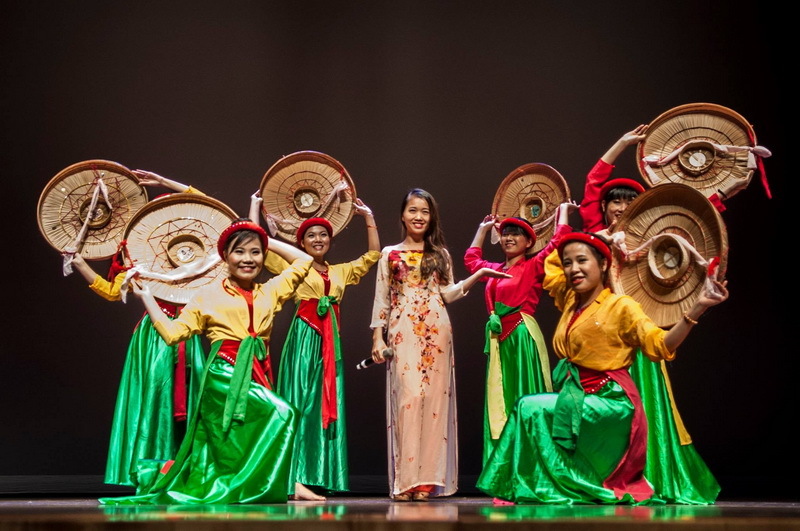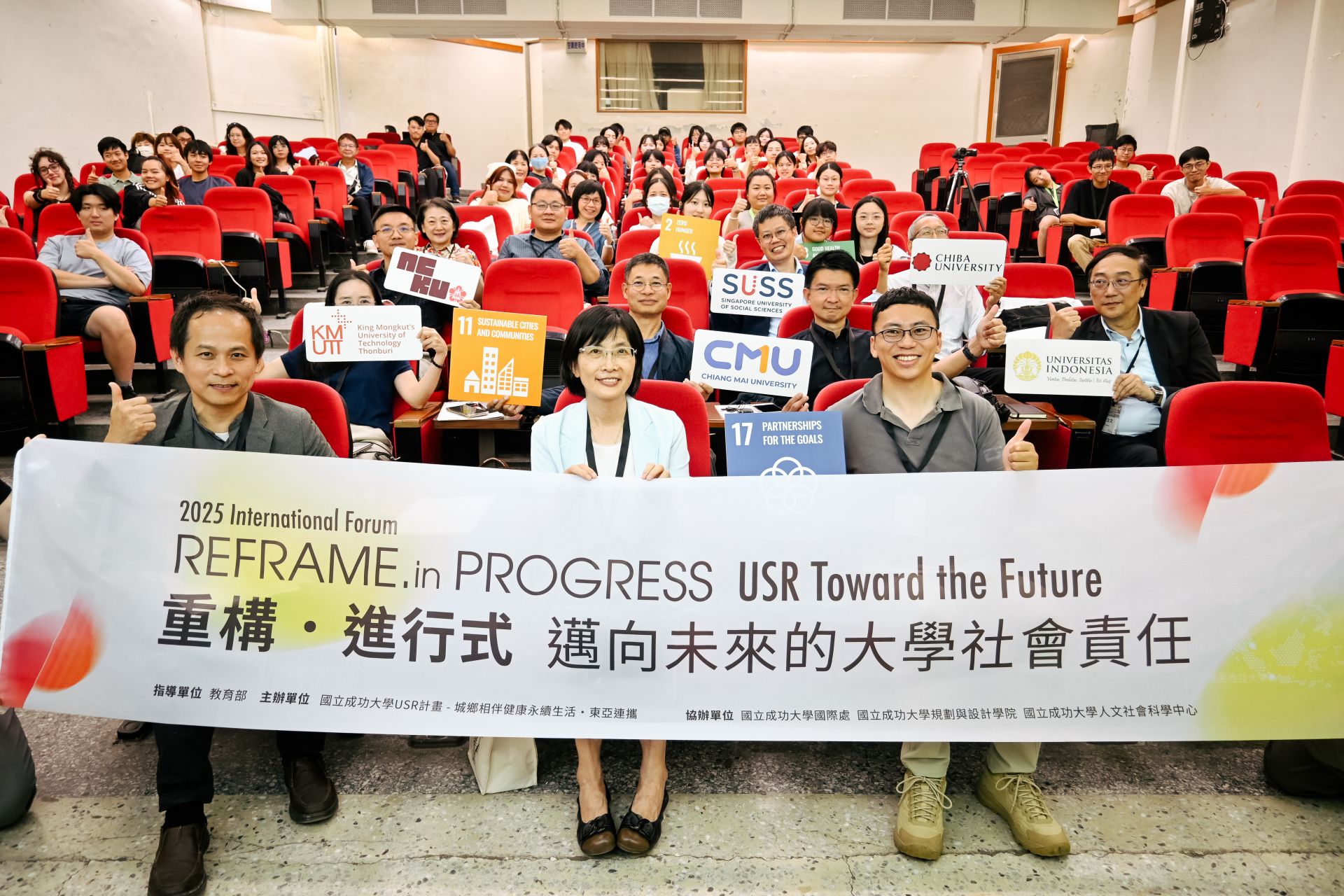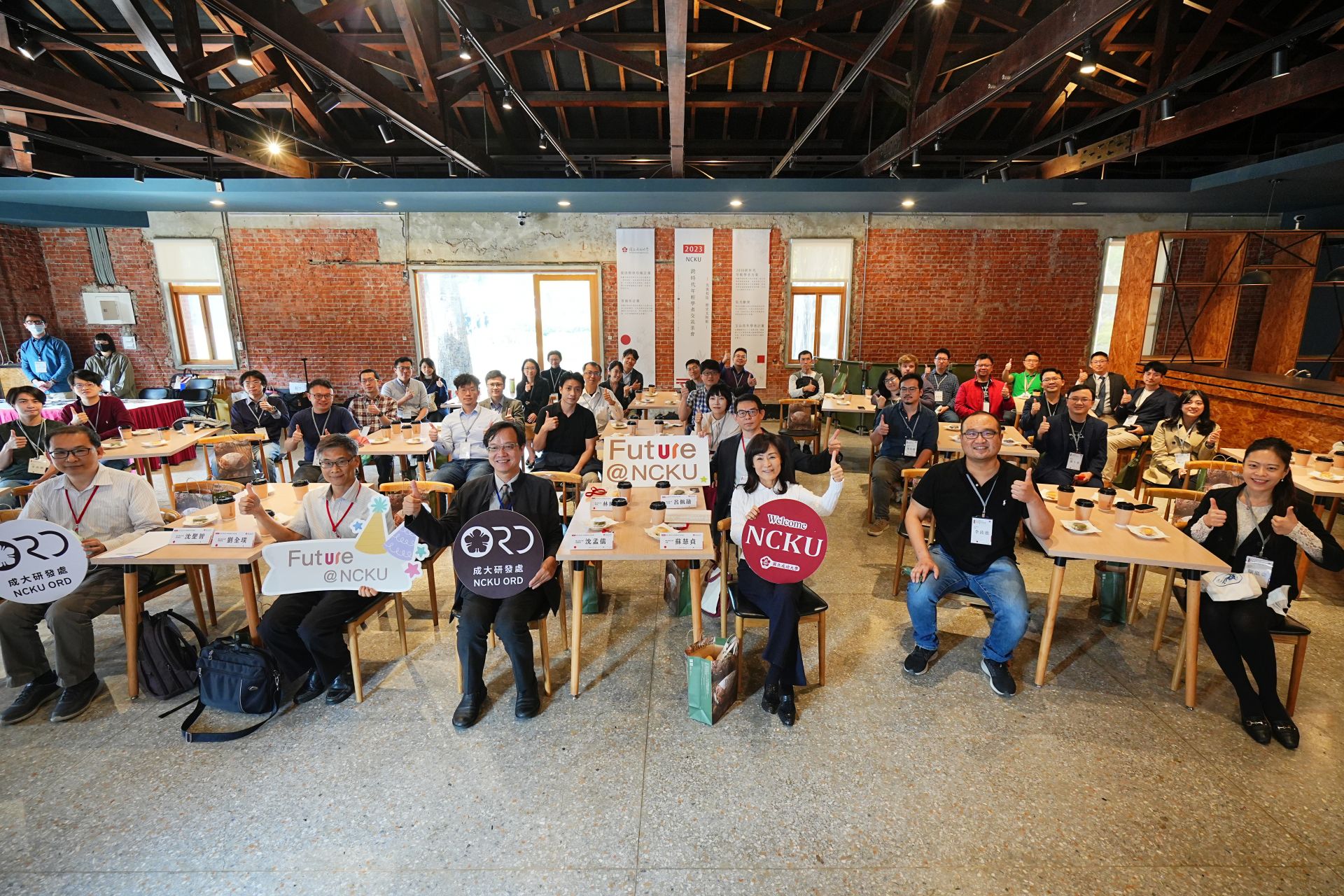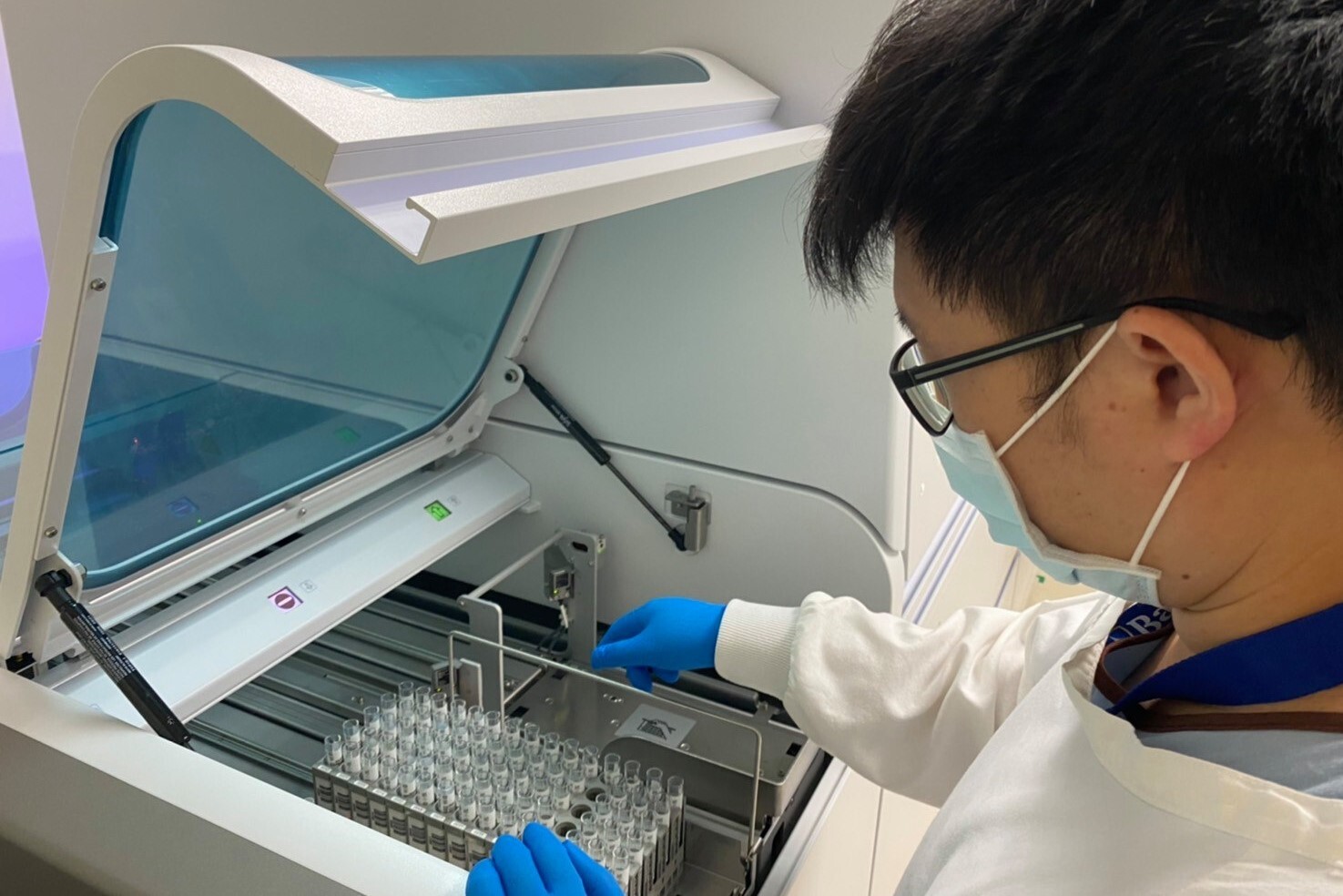In recent years, Taiwan has formed close relationships with many countries in Southeast Asia, and many students from Vietnam, a country with a diverse culture, have chosen to study in Taiwan. With its strong international ranking, convenient location, and hospitable environment, as well as the official establishment of the Center for Vietnamese Studies in 2013, NCKU has become the preferred school for many Vietnamese Students. Nogc Thuy Vi Pham, Trang Trinh Thuy, and Thi Nga Do all chose to pursue their doctoral degrees at NCKU. In addition to their academic achievements, each of them has also made contributions to fostering cultural exchange between Taiwan and Vietnam.
There are currently around 200 Vietnamese students enrolled at NCKU, scattered throughout various departments. For the past twelve years, the Vietnamese Student Association has hosted a range of activities for the university’s annual cultural week. The students spend at least six months preparing for these activities with the aim of spreading understanding of Vietnamese history, traditions, and current socio-cultural climate. Nogc Thuy Vi Pham, who is pursuing her PhD at the Department of Taiwanese Literature in NCKU, once served as the president of the Vietnamese Student Association. She proudly shared, “Over the years, interactions between Taiwanese and Vietnamese students have become closer and friendlier.”
Ngoc Thuy Vi Pham acts as a teaching assistant for the Vietnamese language courses offered at NCKU, and holds the post of Vietnamese language lecturer at Chang Jung Christian University and Chung Hwa University of Medical Technology. She often brings Vietnamese dishes that she cooks herself to her classes as a way of introducing Vietnamese culture. She emphasized that misunderstanding can arise from cultural differences. For example, balut (fertilized duck eggs) is a Vietnamese specialty which can seem strange to other cultures. She therefore made balut for her students to try. “It’s funny to see, because many students were afraid to crack open the shell at first, but once they got a taste, they quickly came back for seconds.”
Ngoc Thuy Vi Pham explained that Vietnam is a diverse country made up of 54 ethnic groups. While there are many similarities between the cultures in Taiwan and Vietnam, they also have their own unique features. " The Center for Vietnamese Studies holds the largest seminar event in Taiwan every three years and invites over a hundred scholars from around the world to present their achievements. The Center for Vietnamese Studies began offering an undergraduate credit course last year due to the increasing opportunities and demand for Vietnamese speakers.”
Trang Trinh Thuy, who has been in Taiwan for six years, comes from North Vietnam. She has a master’s degree in Taiwanese literature and is currently pursuing a PhD in Chinese literature at NCKU. “Taiwanese food is similar to South Vietnamese food. North Vietnamese food is lighter in flavor with little oil or salt. In Vietnam, banh pho is generally accompanied by a large plate of raw vegetables as garnishes as well as many lemon slices.” While unused to the food, she can speak Mandarin as fluently as any Taiwanese person. She loves the friendliness and passion of Taiwanese people and is fascinated by Taiwanese literature.
Trang Trinh Thuy was born in North Vietnam but later lived in South Vietnam, so she is familiar with different aspects of Vietnamese culture. She excels at helping corporations in Taiwan resolve internal conflicts with their Vietnamese employees. She feels fortunate that she heeded her teacher’s advice to study in Taiwan, which has been an eye-opening experience for her. “If I had not come to Taiwan, I would never have learnt the extent of my capabilities. I have become stronger and more independent and confident during my time here.”
Thi Nga Do, who has a cheerful disposition, obtained her master’s degree and PhD in physics from NCKU. Last year, she married a fellow grad student and became a foreign bride in Taiwan. She can communicate with her father- and mother-in-law in simple Taiwanese. She is fluent in Mandarin, English, and Vietnamese and is currently preparing to apply to Ministry of Science and Technology for an overseas research project. She hopes to further her studies in the United States and pursue an academic career in Taiwan. A few days ago, she was invited to serve as a cultural ambassador for the National Immigration Agency.
Thi Nga Do said, “Taiwan is very clean, and life is convenient here. I like Taiwan very much, and I have really enjoyed living and studying here.” During her time in Taiwan, Thi Hga Do has done what she can to give back to the community that has welcomed her. She was in charge of making banh mi, which is Vietnamese bread, for a charity bake sale held by the Vietnamese Student Association at NCKU, and she helped an injured Vietnamese student in the Department of Aeronautics and Astronautics to raise funds
There are currently around 200 Vietnamese students enrolled at NCKU, scattered throughout various departments. For the past twelve years, the Vietnamese Student Association has hosted a range of activities for the university’s annual cultural week. The students spend at least six months preparing for these activities with the aim of spreading understanding of Vietnamese history, traditions, and current socio-cultural climate. Nogc Thuy Vi Pham, who is pursuing her PhD at the Department of Taiwanese Literature in NCKU, once served as the president of the Vietnamese Student Association. She proudly shared, “Over the years, interactions between Taiwanese and Vietnamese students have become closer and friendlier.”
Ngoc Thuy Vi Pham acts as a teaching assistant for the Vietnamese language courses offered at NCKU, and holds the post of Vietnamese language lecturer at Chang Jung Christian University and Chung Hwa University of Medical Technology. She often brings Vietnamese dishes that she cooks herself to her classes as a way of introducing Vietnamese culture. She emphasized that misunderstanding can arise from cultural differences. For example, balut (fertilized duck eggs) is a Vietnamese specialty which can seem strange to other cultures. She therefore made balut for her students to try. “It’s funny to see, because many students were afraid to crack open the shell at first, but once they got a taste, they quickly came back for seconds.”
Ngoc Thuy Vi Pham explained that Vietnam is a diverse country made up of 54 ethnic groups. While there are many similarities between the cultures in Taiwan and Vietnam, they also have their own unique features. " The Center for Vietnamese Studies holds the largest seminar event in Taiwan every three years and invites over a hundred scholars from around the world to present their achievements. The Center for Vietnamese Studies began offering an undergraduate credit course last year due to the increasing opportunities and demand for Vietnamese speakers.”
Trang Trinh Thuy, who has been in Taiwan for six years, comes from North Vietnam. She has a master’s degree in Taiwanese literature and is currently pursuing a PhD in Chinese literature at NCKU. “Taiwanese food is similar to South Vietnamese food. North Vietnamese food is lighter in flavor with little oil or salt. In Vietnam, banh pho is generally accompanied by a large plate of raw vegetables as garnishes as well as many lemon slices.” While unused to the food, she can speak Mandarin as fluently as any Taiwanese person. She loves the friendliness and passion of Taiwanese people and is fascinated by Taiwanese literature.
Trang Trinh Thuy was born in North Vietnam but later lived in South Vietnam, so she is familiar with different aspects of Vietnamese culture. She excels at helping corporations in Taiwan resolve internal conflicts with their Vietnamese employees. She feels fortunate that she heeded her teacher’s advice to study in Taiwan, which has been an eye-opening experience for her. “If I had not come to Taiwan, I would never have learnt the extent of my capabilities. I have become stronger and more independent and confident during my time here.”
Thi Nga Do, who has a cheerful disposition, obtained her master’s degree and PhD in physics from NCKU. Last year, she married a fellow grad student and became a foreign bride in Taiwan. She can communicate with her father- and mother-in-law in simple Taiwanese. She is fluent in Mandarin, English, and Vietnamese and is currently preparing to apply to Ministry of Science and Technology for an overseas research project. She hopes to further her studies in the United States and pursue an academic career in Taiwan. A few days ago, she was invited to serve as a cultural ambassador for the National Immigration Agency.
Thi Nga Do said, “Taiwan is very clean, and life is convenient here. I like Taiwan very much, and I have really enjoyed living and studying here.” During her time in Taiwan, Thi Hga Do has done what she can to give back to the community that has welcomed her. She was in charge of making banh mi, which is Vietnamese bread, for a charity bake sale held by the Vietnamese Student Association at NCKU, and she helped an injured Vietnamese student in the Department of Aeronautics and Astronautics to raise funds























